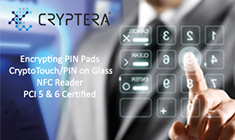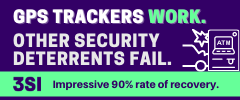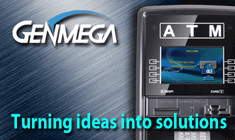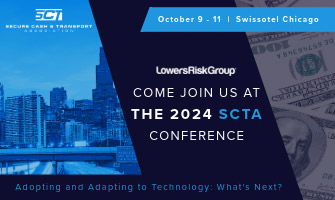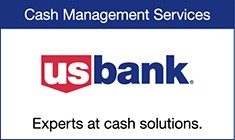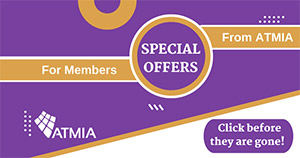
About U.S. ATM Industry Advocacy Fund

ATMIA – Working for you and the industry!
ATMIA is constantly working hard for its U.S. members – both visibly and behind the scenes. Our mission and current business plan continue to focus more and more strongly on member-centric value.
Although advocacy is a core component of that mission, without a nationally galvanizing issue like physical fee placard notices, it may not be as noticeable today as it was a few years ago. However, ATMIA USA is more engaged with industry initiatives and issues than ever before – particularly at the state level. Some recent history and an overview of current efforts are discussed below.
.jpg)
ATMIA recently hosted a two-day fly-in event in Washington, DC. A full schedule of eight meetings focused on members of the House Financial Services Committee and Senate Committee on Banking, Housing, and Urban Affairs. And the day ended with a very productive meeting at the Consumer Finance Protection Bureau (CFPB).
Last year, U.S. Executive Director, David Tente, and EFTA President and CEO, Kurt Helwig, met with Rep. Blaine Luetkemeyer to discuss Operation Choke Point the morning before it was voted out of committee. The Fly-In group met with him again, to thank him for his ongoing efforts and support for our industry.
The growth of Reg E dispute fraud was brought to the attention of CFPB Chief of Staff and Public Affairs Director, Emma Doyle. ATMIA requested that windows for consumer claims and ATM operator responses be better aligned, in order to make fraud more difficult to perpetrate. The maximum window for consumers to file a claim is currently 180 days. ATMIA also supports current efforts to change CFPB leadership to a five-person commission, and to bring the funding mechanism into normal budgetary processes.
The hallmark of successful U.S. initiatives within the last six years is the revision of Reg E, eliminating the requirement for a physical placard fee notice, if an electronic version is presented. ATMIA was involved in this effort from its earliest legislative beginnings in July of 2011. In addition to our own individual contribution, ATMIA’s partnership with EFTA helped legislators define the bill and move it forward. The House version of the bill (HR 4367) was passed and signed into law in December, 2012.
ATMIA led the industry in developing recommendations for a path to Windows® 7 migration. The Microsoft Consulting Services group’s Principal Consultant participated in nearly every meeting of the ATMIA Windows 7 Migration Committee. Another notable product of this committee’s efforts was an ‘ATM OS Migration Cost Model’, which helps ATM operators predict costs and plan for future operating system migrations.
Up until March of 2014, IADs were not permitted to own and operate ATMs in the State of Tennessee, except in cooperation with a financial institution. This created a tremendous burden on independent operators and a need to enter into a token ‘lease’ agreement with an FI for each retail terminal. ATMIA’s U.S. operator survey found that more than 3,000 such leases were in place at the end of 2013.
ATMIA supported the effort to lobby Tennessee legislators and educate them on the impact to the industry in their state. Tennessee Senate Bill 1478 was passed by an overwhelming majority, in a mere six months – for the first time, granting independents the right to own and operate ATMs.
|
Founding member and co-chair of the EMF ATM Working Committee |
ATMIA was one of the first members of the EMV Migration Forum cross-industry group and a founder of the ATM Working Committee. Early on, it was the lone voice for ATM operator concerns over the impact of EMV migration, in a discussion dominated by merchants and POS considerations. In fact, there were suggestions initially that ignoring the ATM channel could speed up the work effort. The ATM Working Committee quickly became one of the largest EMF committee groups and is dominated by ATMIA members. Its primary work product, the “Implementing EMV at the ATM” white paper, is an indispensable resource and tool for all ATM operators. ATMIA has also contributed to creation of a webinar based on the White Paper and a consumer education website, GoChipCard.com. |
|
Compliance and regulatory monitoring services |
Whether your organization operates thousands of ATMs or just a few, compliance and regulatory burdens are growing every day – both at the state and federal levels. In fact, the smaller the organization, the more challenging these requirements may be. Many new regulations become effective as soon as the bill is passed or the rule written. And smaller organizations simply do not have the resources to monitor the changes that occur on a daily basis. For this reason, ATMIA has implemented compliance and regulatory monitoring services for all 50 states. Analysts review bill movement on a daily basis and notify members of new activity on ATM related issues. In addition, email alerts are sent when new law is posted to the State Register. These services are worth thousands of dollars, even for a single state, but are available free to all ATMIA members For more detailed information about this benefit of membership, download the Compliance Benefits of Membership brochure. |
|
Founding member of the Federal Reserve’s Faster Payments Task Force |
ATMIA is a founding member of the Faster Payments Task Force, which is developing criteria for a faster and more secure payments system. This work is based on the "Strategies for Improving the U.S. Payment System" white paper that was released earlier this year. The voice of the ATM channel is a critical one in this discussion. Prospects for additional, revenue-producing transactions utilizing the ATM, and potentially including a cash component, could be greatly enhanced through implementation of a ubiquitous real-time system. |
|
An expanding library of Best Practices manuals for the lifecycle of the ATM |
The Best Practices library has grown to over 35 manuals addressing a wide variety of topics. Numerous aspects of security and fraud prevention are included, as well as many other topics critical to the lifecycle of an ATM. All ATMIA members have free access to Best Practices manuals and their periodic updates. This is one of the most highly valued benefits of membership. |
|
Investigating the feasibility of next generation ATM operating systems |
The recent migration from Windows XP to Windows 7 is just the beginning of a series of OS upgrades that could be ahead for the ATM industry. Even the embedded versions of Windows used today on many retail ATMs have only a short lifespan remaining. Members of ATMIA’s Next Generation ATM Architecture Committee are proactively looking at the feasibility of alternative operating systems. It is important to identify those alternatives now and create a framework for evaluating the risks, costs, and potential benefits; rather than simply react when those decisions are upon us. |
|
Promoting the importance of cash and consumer access to cash |
ATMIA accepts that it is a basic economic freedom for citizens in free economies to choose their most trusted, efficient and convenient form of payment for goods and services, whether that be cash or other forms of money or a combination of both. Advocacy for the right to choose cash is a basic tenet of ATMIA’s mission. It is done through ongoing promotion of cash, publishing of position papers, production of videos, and other means. |
|
Advocating with the Federal Reserve for |
ATM operators today have very little influence over ATM transaction routing. Business relationships between issuers and networks determine which networks are enabled on debit cards. And network rules generally give issuers the right to make routing choice, as well. ATMIA has met with the Federal Reserve Board of Governors and recommended adding language to Reg II prohibiting restrictions on ATM operator routing selection between the networks enabled on an issuers debit card. This would create new competition between networks for routing selection by those operators and result in downward pressure on network fees. ATMIA believes that these changes are important and necessary for the health of the ATM industry, which continues to serve as the consumer’s preferred channel for convenient access to cash. They will also have a positive impact on other electronic payment channels, since many of those networks offer both merchant and ATM services. Therefore, ATMIA will continue to advocate for ATM operator routing choice and keep this discussion alive in the public arena. |
|
Reduction of withdrawal dispute (Reg E) fraud |
Fraudulent withdrawal disputes are a $20+ million annual problem for the ATM industry, which hits independent operators the hardest. And unfortunately, handling such disputes has become a daily, standard operating procedure for ISOs and their processors. ATMIA is working with networks, processors, and issuers to find a better way of deterring this type of fraud. Within the current environment, it is the acquirers that typically suffer the loss, even though they are the least able to play an active role in prevention. |
|
Advocating for variable surcharging |
Variable (discriminatory) surcharging may be the most sought-after and oldest issue that faces ATM acquirers. This is the ability to vary the amount of the surcharge at a specific ATM, based on differences in network fees and other costs – or for any other reason. Some networks require that surcharges applied to their transactions are no higher than the lowest surcharge applied to any other network’s transactions at that ATM – even if the cost of using that network is the highest. ATMIA has long been a supporter of the elimination of any sort of controls or limitations on the amount of surcharge/convenience fees, believing that competition and the marketplace is the best arbiter. A new effort is being launched to vigorously pursue this issue. More information will be available soon. |
|
“Foreign bank” fees creating risk |
A recent survey of bank ATM surcharges, which includes the fee banks charge customers to use an out-of-network ATM (“foreign bank” fees), has generated a demand from Sen. Chuck Schumer that the CFPB investigate this issue. It remains unknown as to what action might be taken – or when. However, ATMIA will take proactive measures to inform regulators and legislators about the facts surrounding this issue. |
ATMIA’s Charter establishes protocols for the use and management of each region’s Advocacy Fund. For the USA fund, the purpose is:
To establish a US industry advocacy fund to be used by ATMIA’s Government Relations Committee (GRC), and other important US-based Committees, to cover the costs of lobbying and monitoring various state and federal authorities regarding any proposed legislation which could adversely affect ATM businesses and the industry as a whole.
Such a fund will be properly registered and audited as part of the ATM Industry Association’s annual audit and will be managed in a transparent way by the Government Relations Committee, and any other US-based Committees making use of the fund, reporting to the Executive Board of ATMIA. Meetings of voting committee members may be held as required to determine the scope of additional disbursements.
Contributions will be managed to retain the dollars in the general ATMIA account / Region P&L equal to the budgeted monitoring cost each year. Any excess contributions must be moved to that Regions’ Advocacy Fund and future disbursements must be approved by the Finance Team and Executive Director of the Region.
In addition, contributors and sponsors of the fund will receive public recognition in ATMIA newsletters, press releases and announcements at annual US conferences as well as on a special webpage on which their logos and links will be showcased. A donor may choose not to have their donation recognized in this way and may, in this case, fill in a confidentiality statement to accompany the donation.
Every dollar contributed to the US Advocacy Fund is used for US efforts only.
All of the efforts discussed above are supported by the U.S. Advocacy Fund. Although the fund currently does have a positive balance, contributions are needed on an ongoing basis to avoid the need to use those funds for the provision of ordinary member benefits, such as compliance and regulatory monitoring services.
A healthy U.S. Advocacy Fund helps ensure that ATMIA is able to react quickly to events or issues that could inflict harm on its members or the industry. Advocacy Fund contributors are acknowledged on the ATMIA website, at the annual conference, and through email notifications at various times during the year. It is a great way to help the industry – and visibility demonstrate support from your organization.
Protect Our Industry: Donate Today!
ATMIA is accepting credit cards, checks and cash donations. If you prefer to spread out your donation over a number of months in order to make it more affordable, ATMIA will bill you monthly or charge your credit card on a monthly basis.
DONATE ONLINE
Choose the U.S. Industry Advocacy Fund from the drop down list and complete the form.
Need More Info?
Contact David Tente, US Executive Director at [email protected] or (407) 833-7906

